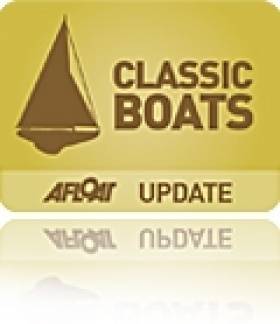Displaying items by tag: traditional boat
Crosshaven Traditional Sail 2013 Includes Trad Boat Talk
#classicboat – Crosshaven Traditional Sail 2013 kicks off this weekend in Cork Harbour with boats arriving from Friday at the Hugh Coveney pier, Crosshaven. The first race of the festival is at 2pm on Saturday and is to be followed by a best dressed pirate and wench competition.
On Sunday in a highlight of the weekend gathering Pat Tanner will give a talk on the Traditional Boats of Ireland Project in Cronin's Bar, Crosshaven.
The Traditional Boats Project is the result of a combined effort by Irish people who are passionate about the rich diversity of boat types throughout the country. This project is a by-product of a loosely affiliated group of individuals with a shared realisation that Ireland's traditional boat types are rapidly disappearing.
The full programme of events is below:
Friday 14th:
Boats arriving at Hugh Coveney Pier
1900 – 2030 Registration for the Early Birds
followed by
2100: Welcoming Reception in "O'Reilly's Bar"
Saturday 15th :
0900 - 1230 Registration of Boats at Sail
Office on Pier
1200: Knot-tying competition
1300: Race briefing on the Pier
1400: Race start in vicinity of Grassy
1700: Boats returning –
1830: Mad Fish best dressed pirate and wench competition
Bar Food, Music & Craic in the Pubs
Sunday 16th:
1000: Rise & Shine & Post Mortems
1200: Traditional Boats of Ireland talk by Pat Tanner in Cronin's Bar
1300: Skipper's briefing on the pier
1400: Racing (all types of Craft)
1600: Crab-fishing competition on the Pier, best dressed pirate under 14 competition
1700: Spectacular Parade of Sail as Race
finishes at the Pier followed after much deliberation with the Prize Giving & Craic at Johnny's Return/ Buckley's Bar
NB: Times are subject to change due to Weather/Tides
























































